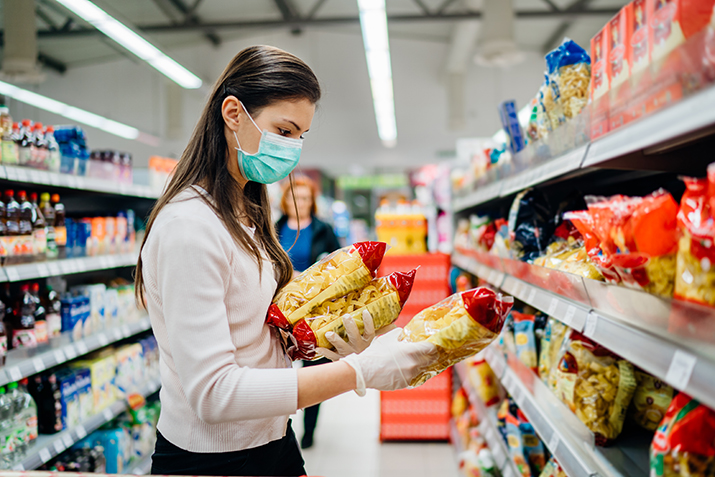Report finds UK food retail market as one of the hardest hit by pandemic conditions

An in-depth review of the UK’s retail industry amidst the Covid-19 pandemic, has shown that the sector has been one of the most affected market segments, with drastic changes to the way consumers purchase their products.
According to the study from TextAnywhere, while the quantity of goods being bought from food stores was decreasing in the months leading up to the Covid-19 outbreak, research has found that the situation has since dramatically reversed.
Examining the 12 weeks leading up to 22 March, the report states that all of the major UK supermarkets saw significant increases in sales: Lidl’s sales rose the most during this period with a 17.6% increase, whilst Ocado and Iceland were next with 12.5% and 11.7% increases respectively. Aldi, The Co-operative, Waitrose, Sainsbury’s, and Tesco also saw sales increase by more than 5%.
The report also states that a surge in demand for groceries has also produced knock-on effects in terms of staffing, opening hours and product lines in the UK food industry. Supermarket chains have needed to employ thousands of additional workers in temporary positions, with 5000 new short-term positions opened up by The Co- operative alone.
At the same time, these supermarkets have reportedly had to drastically cut their product ranges – Morrisons, for example, has reduced its bakery lines from 17 to seven. Stores such as Tesco and Sainsbury’s have also introduced shopping hours that are reserved for the elderly, vulnerable customers, and key workers.
In addition, according to TextAnywhere, with the nation encouraged to stay home where possible, online shopping searches have increased by over 2400% since the pandemic began.
For example, Google saw a surge in search terms after the lockdown had been announced, with ‘online delivery’ ‘supermarket open times’ and ‘buy pasta’ being among the top searches.
As the demands for certain essential items – including pasta – increased, the availability of these types of goods reportedly dropped suddenly in many cases. The availability of panic bought goods fell to 11% at Morrisons during the period 18-22 March, whilst Tesco had a 16% availability of these items (the highest level from within the big four at this stage).
The worst-affected ‘essential’ items were hand sanitiser, pasta, and bleach (with pasta falling as low as 4% availability across all stores). A stark decline was also observed in the availability of UHT milk across all retailers; the overall supermarket availability was 44% on 14 March, falling suddenly to 4% by 20 March.
Amy Robinson, Senior Brand Development Manager at TextAnywhere, said: “We appreciate it’s a difficult time for retailers. For those working in the sector, the threat of reduced spend, impossible footfall, stock shortages and more mean that business remains unpredictable. We hope this report can support retailers across the board by providing insight into the variety of challenges the industry is currently undergoing.”
To read TextAnywhere’s full market report, click here.



